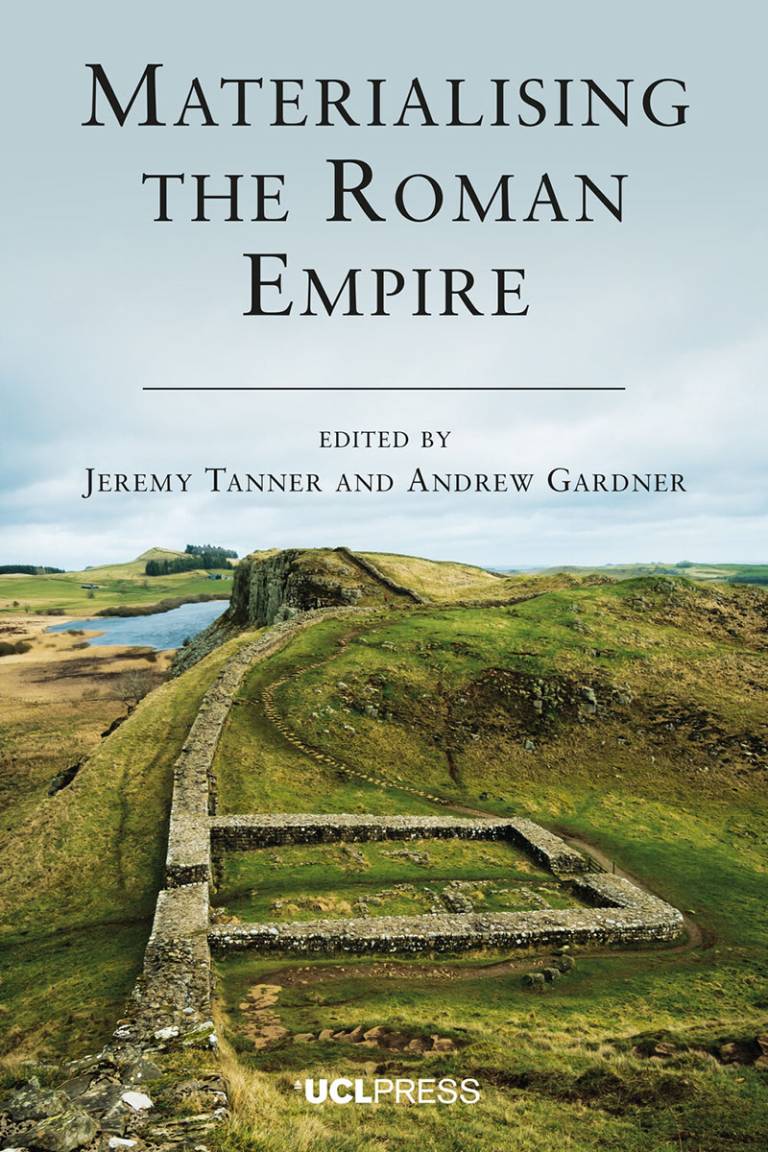Materialising the Roman Empire
7 March 2024
A new open access volume, Materialising the Roman Empire, will be published shortly by UCL Press.

Materialising the Roman Empire, edited by Jeremy Tanner and Andrew Gardner (UCL Institute of Archaeology), defines an innovative research agenda for Roman archaeology, highlighting the diverse ways in which the Empire was made materially tangible in the lives of its inhabitants. The volume explores how material culture was integral to the processes of imperialism, both as the Empire grew, and as it fragmented, and in doing so provide up-to-date overviews of major topics in Roman archaeology.
Each chapter offers a critical overview of a major field within the archaeology of the Roman Empire. The book’s authors explore the distinctive contribution that archaeology and the study of material culture can make to our understanding of the key institutions and fields of activity in the Roman Empire.
The initial chapters address major technologies which, at first glance, appear to be mechanisms of integration across the Roman Empire: roads, writing and coinage. The focus then shifts to analysis of key social structures oriented around material forms and activities found all over the Roman world, such as trade, urbanism, slavery, craft production and frontiers. Finally, the book extends to more abstract dimensions of the Roman world: art, empire, religion and ideology, in which the significant themes remain the dynamics of power and influence.
The whole builds towards a broad exploration of the nature of imperial power and the inter-connections that stimulated new community identities and created new social divisions.
The fully open access monograph may be downloaded from the UCL Press website later this month.
 Close
Close

